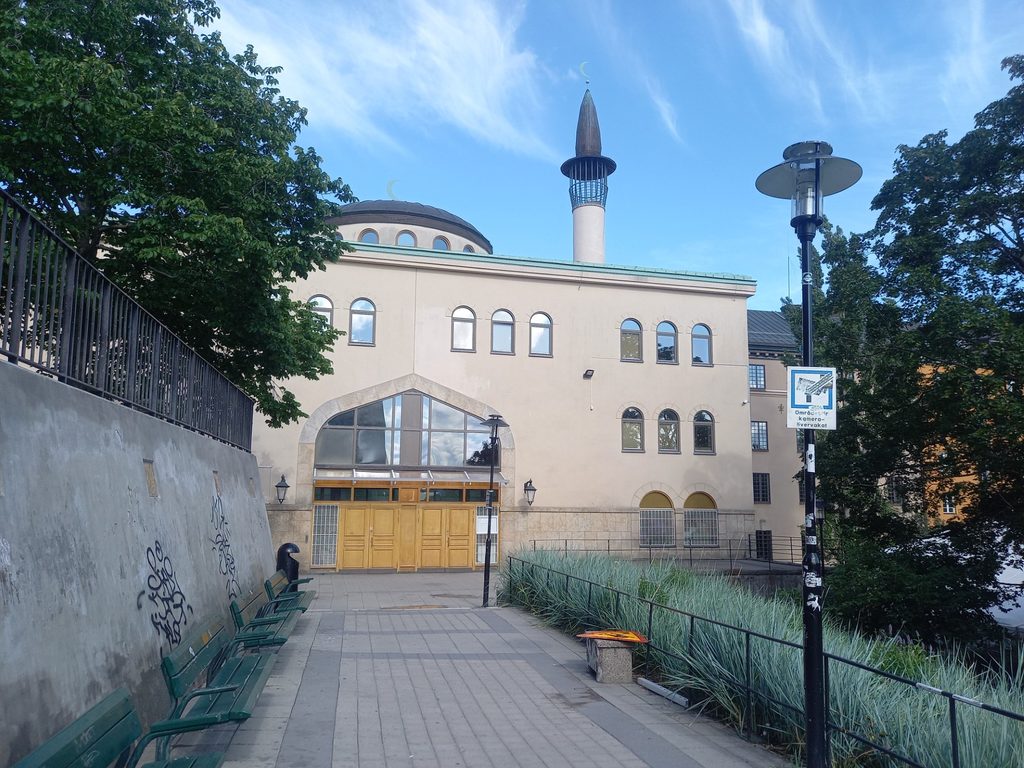The Swedish government published on Friday the directives for an inquiry to review the public order act and the possibility to limit public gatherings and demonstrations that might pose a threat to its security.
The directives were first announced in a joint op-ed in Dagens Nyheter by Prime Minister Ulf Kristersson and the party leaders of his two coalition partners. The minister of justice, Gunnar Strömmer, presented them later at a press conference on Friday afternoon. The issue of the Quran burnings that are taking place in Sweden continues to be excluded from any new legislation.
“Some want to re-introduce the crime of blasphemy or change the law on incitement against population groups in order to prohibit in practice desecration of religious scriptures,” they wrote.
“But we believe that would be the wrong way to go. It would mean that certain statements are prohibited because of their content, regardless of where they are made. We are then talking about very far-reaching infringements on freedom of expression.”
“The government wants to protect Swedish freedom of expression, which means that you can express opinions that others perceive as provocative and hurtful - also about religion. Sweden is and will continue to be a country with freedom of religion, but also with the right to criticize religion - even in a way that a believer may perceive as offensive.”
Today, the police authority can refuse permission to a public gathering if there is a danger to order or safety at the place in question, the Swedish minister of justice explained. However, the police are not allowed to weigh Sweden's security, for example a general risk of terrorist attacks, in the assessment.
The government can, with the support of the law (Public Order Act), intervene and limit where a public gathering may be held, but only in the event of war and danger of war. Sweden is more concerned about terrorist attacks than the Quran burnings that might cause them. The terrorist threat level in Sweden was last week raised to 4 on a scale of 1 to 5.
“There is thus a gap, a security vulnerability, between the danger of war and disorder in a specific location. We are now going to ensure that there is an input for decisions to enable us to act in the future if the situation requires it,” he said. The new inquiry will be supported by a parliamentary reference group and is due to be finalized by 1 July 2024.
As already reported, Sweden has recently reviewed its legislation against incitement to violence and hatred and proposed legislative amendments to address loopholes in the implementation of the EU Framework Decision against racism and xenophobia. According to the proposal, the amendments would not prohibit any acts that are currently permitted such as Quran burnings.
The directives are clear on this point. “Freedom of expression means a very far-reaching right for individuals to express thoughts and ideas on any subject. There is currently no scope for the authorities to make an assessment in advance of the content of an intended opinion in for example a demonstration.”
The Swedish ministry of justice did not respond to a request from The Brussels Times for comments on the new directives. Quran burnings continue to be considered as ‘statements” that are protected by freedom of expression.
The holy Quran has been burnt by people to demonstrate against Muslim immigration to Sweden, to protest against the lack of freedom of expression in other countries and to draw attention to other grievances. According to the directives, several of the recent demonstrations were carried out by foreign citizens.
The inquiry is instructed to consider a limitation of the right to demonstrate which only will apply to foreign citizens but the Swedish justice minister explained that he preferred uniform legislation for all. He cautioned against the risk that foreign actors could use Swedish citizens for provocative acts in Sweden.
The position of the European Commission as regards Quran burnings is clear, a spokesperson underlined at a press conference last Thursday. “Manifestations of racism, xenophobia and intolerance have no place in Europe. Such actions are incompatible with the values that the EU is founded on.”
Can the Framework Decision or any other EU legislation be applied against the Quran burnings?
There is an ongoing infringement procedure against Sweden’s transposition of the Decision but this case is unrelated to the Quran burnings. The Commission does not comment on the application of the Framework Decision in concrete cases.
A Commission official clarified that, “It’s not possible to determine in general terms whether a specific action constitutes incitement to violence and hatred. An assessment must always be made on a case-by-case basis by the national authorities. It is for them to establish, on this basis, whether the national provisions implementing the Framework Decision apply.”
M. Apelblat
The Brussels Times

